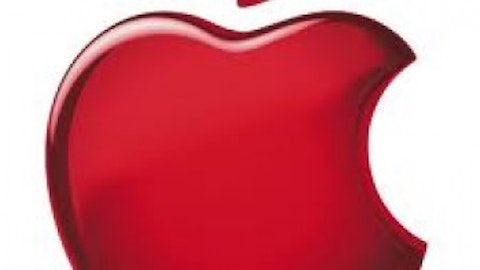
Although Research In Motion Ltd (NASDAQ:BBRY) CEO Thorsten Heins said the exact release date will depend on each wireless provider, he said the physical keyboard version, the BlackBerry Q10, will likely come out eight to 10 weeks after a carrier releases a model with only a touch screen, the BlackBerry Z10. The Z10 is expected in the U.S. in mid-March, so eight to 10 weeks brings the U.S. date for the Q10 to mid-May to early June.
“We’re trying to get it as close as we can,” Heins said in an interview this week with The Associated Press.
Both models are part of RIM’s attempt at a comeback after the pioneering brand lost its cachet not long after Apple Inc. (NASDAQ:AAPL)‘s 2007 release of the iPhone, which reset expectations for what a smartphone should do.
RIM promised a new system called BlackBerry 10 to catch up, using technology it got through its 2010 purchase of QNX Software Systems. But it has taken more than two years to unveil new phones that are redesigned for the new multimedia, Internet browsing, and apps experience that customers are now demanding.
RIM said last week that the Q10 should be available through some carriers around the world in April, but it wouldn’t say at the time whether any were in the U.S.
In the interview, Heins said it was up to the carriers to do the necessary testing and to decide whether they could shorten the process. He said eight to 10 weeks after the Z10 launch was “a good range” of what to expect.
Such a delay would further complicate RIM’s efforts to hang on to customers tempted by Apple’s trend-setting iPhone and a range of devices running Google Inc (NASDAQ:GOOG)‘s Android operating system. Even as the BlackBerry has fallen behind rivals in recent years, many BlackBerry users have stayed loyal so far specifically because they prefer a physical keyboard over the touch screen found on the iPhone and most Android devices. But the temptations to switch grow with each additional delay, despite favorable reviews for the new system.
Heins told the AP that he’s disappointed the touch-only BlackBerry won’t be released in the United States until mid-March, but he said the U.S. and its phone carriers have a rigid testing system.
“We need to respect that. Am I a bit disappointed? Yeah, I would be lying saying no. But it is what it is, and we’re working with all our carrier partners to speed it up as much as we can,” Heins said in Monday’s interview at the Ritz Carlton in Toronto, ahead of Tuesday’s debut of the touch-only model in Canada, RIM’s home.
RIM unveiled new BlackBerrys last week after excruciating delays allowed Apple, Samsung Electronics, and others to build commanding leads in the industry. The stock fell 12 percent last Wednesday after the kickoff event. There’s concern the phone isn’t coming out sooner than the March date for the U.S. announced last week.
Black and white versions of the touch-screen Z10 were released in the U.K. last Thursday. Heins said early data suggest that a substantial number of U.K. users are moving from other systems to BlackBerry, even though RIM initially targeted longtime BlackBerry users.
“It’s beyond expectations,” Heins said in the interview. “White is sold out already. The black is hard to stock up again. It’s very encouraging. I won’t share the number because I need to verify it, but we are getting a substantial number of users moving from other platforms to BlackBerry.”




